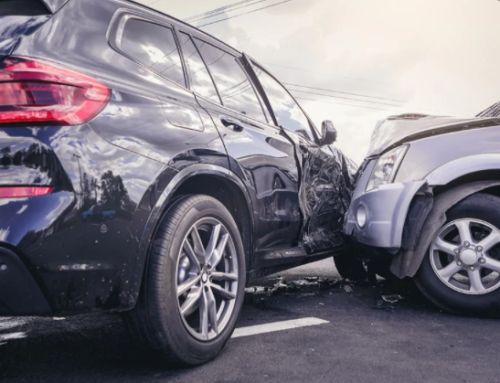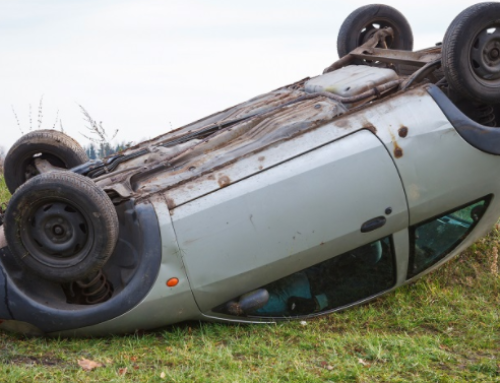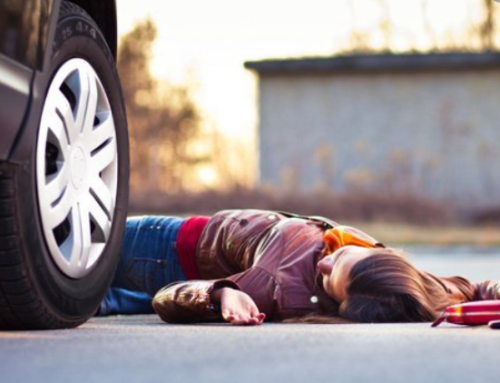FAQ: If I Get Into An Accident in Las Vegas, Who Can We Hold Responsible?
In a busy city like ours with all sorts of drivers on the road, even the most experienced drivers can get into car accidents. From out-of-town tourists to taxi cabs rushing through traffic and drunk drivers on the way out from the club, it’s inevitable for anything from fender benders to multi-car crashes to happen.
If you have been involved in such an accident, it is important to determine who was at fault for the collision and to what extent, so that you know who will be liable for the injuries and damages from the incident. Nevada is what is called a fault state, which means that the person who is found to be at fault for the automobile collision can be held financially responsible for medical costs, repairs, rehabilitation costs, and more.
Here is a list of persons and entities who can be held legally responsible for a car crash in Nevada, as well as ways you can maximize your claim’s success accordingly.
Motorists (Other Drivers)
The majority of Nevada car crashes occur between two motorists who are driving their own personal vehicles. Sometimes, it’s clear who is at fault, such as when someone runs a red light or is driving under the influence. In these cases, that driver can be held fully liable for the damages.
In cases where it’s not as clear who was responsible for the accident, something called comparative negligence comes into play under Nevada’s specific traffic accident laws. This means that partial fault is used to calculate the total payout from the case.
For example, there may be a particular accident involving two drivers crashing into each other at an intersection. If the total damages and medical costs equal $100,000, the ruling can look something like this:
- Driver A is found to have violated right-of-way laws, and is determined to be 90% responsible for the accident
- Driver B is found to have not put on a turn signal, and is determined to be 10% responsible for the accident.
- Driver A, with more fault (90%), is liable for $90,000.
- Driver B, with less fault (10%), is not liable for any damages at all.
The amount of fault is subjective and is determined by the jury during the case, which makes it even more important to have an experienced Las Vegas personal injury lawyer on your side to build a favorable case for you.
Comparative negligence can also apply to other types of motor vehicle accidents in Nevada, which we will discuss below.
If you get into an accident with another motorist, insurance coverage can also come into play. However, it is important to seek legal counsel even if the other driver claims they have insurance or provides proof of insurance. Many drivers in Las Vegas auto accidents are actually underinsured or uninsured motorists: in fact, it’s estimated that 10% of Nevada drivers have inadequate or no insurance. Even when insurance companies seem willing to help, they often attempt to minimize the payouts for medical costs and property damages, so be sure to consult an experienced traffic accident lawyer to maximize your success for your claim.
Truck Drivers and Commercial Vehicle Operators
Some of the most serious vehicular accidents are caused by trucks, including semis, big rig trucks, and other commercial motor vehicles. Most of these trucks are driven by a hired employee, and they along with the trucking company, freight company, and/or maintenance company involved with the vehicle can be held liable for a Nevada truck accident.
For example, if a delivery truck causes an accident on the highway because cargo in the hold was not properly secured, and another vehicle crashes into the cargo causing serious injuries and damages, both the trucking company and the loading company may be held responsible for these costs.
It’s also not uncommon to see fatigued drivers and their employers held at fault in these accidents, since there is a legal limit to the number of hours a truck driver can operate each day. According to the Federal Motor Carrier Safety Administration’s Hours of Service limits regulations, an employed driver can only drive for:
- 11 hours out of a 14 hour window,
- and only after having been off-duty for at least 10 hours prior.
Any more than this is a violation of law and can be used in court to prove fault. In many cases, trucking companies have powerful legal teams that can help defend them should they be sued or held liable for a traffic accident, so it is key to seek immediate legal advice should you become involved in a truck traffic accident in Nevada.
Public Transportation Operators (Bus Accidents, Taxi Accidents, Public Transit Crashes)
We have a wide range of public transit options here in Las Vegas, including RTC transit buses, shuttles for casinos, limousines, and taxis. Even school buses fall under this category. In general, any vehicle that can hold 10 or more passengers can be considered a public transit vehicle.
Unfortunately, even trusted public transit options can be the cause of serious traffic accidents and injuries, and these operators can be held liable for damages as well in a Nevada public transit accident.
Just like in accidents involving commercial trucks, the driver of a public transit vehicle is often an employee and they, along with the transport company, maintenance company, and contracting company, can be held at fault for the collision. And like lawsuits and claims involving trucking companies, these public transit companies often have experienced defense teams who will attempt to minimize the damages paid out by the company. Be sure to consult with a lawyer and do not attempt to negotiate with these companies or any insurance representatives yourself.
Motorcyclists and Bicyclists
Many traffic accidents involve motorbikes and bicycles, and contrary to popular belief, it is not always assumed that the larger car or vehicle is at fault in collisions involving bikes. As we’ve discussed, Nevada is a comparative negligence state and it can be determined that a motorcycle driver or cyclist was more responsible for a given accident, in which case they are liable for the damages. If the motorcyclist is found to be at fault and is determined to be 80% responsible for causing the accident, they will be required to pay 80% of all total damages.
Insurance coverage plays a big role in these incidents again, as in many cases it’s the motorcycle driver or cyclist’s insurance company that will pay out for damages. A cyclist’s auto insurance will sometimes cover them in a bicycle collision or accident as well. And just like with other vehicle operators, many motorcyclists are uninsured or underinsured, so be sure to consult a lawyer even if the other party claims they have insurance. In all cases, the insurance company will work to pay as little as possible, and they can design a case that makes it appear that their client is not at fault so they can avoid paying damages.
Absent Vehicle Owners (Negligent Entrustment)
According to Nevada law, the owner of a vehicle may be held liable even if they are not at the scene according to something called negligent entrustment. This means that the owner either knowingly or unknowingly lent the vehicle to someone who should clearly not be driving the vehicle, such as a minor or unlicensed operator. This can also apply to licensed motorists if the person was found not fit to drive, such as if they were drunk, inexperienced, under the influence of drugs, or with a history of reckless driving or DUI.
Car Manufacturers (Product Liability, Product Defect)
Should the accident be caused by an issue with one or more of the vehicles, such as a malfunctioning brake or an SUV model proven to easily rollover, the car manufacturers can also be held responsible for the damages. This is called a product liability lawsuit, since these companies are legally obligated to design safe vehicles within reasonable safety standards.
As former defense counsels for the insurance industry, we are familiar with the many ways these motor accident claims can go. Regardless of the type of vehicular collision or liable party, it is absolutely critical to get a solid legal team on your side to maximize your claim – and to avoid being sued for a substantial amount of money yourself, since there is always the possibility that the other motorist can create a case that frames you for the accident.




